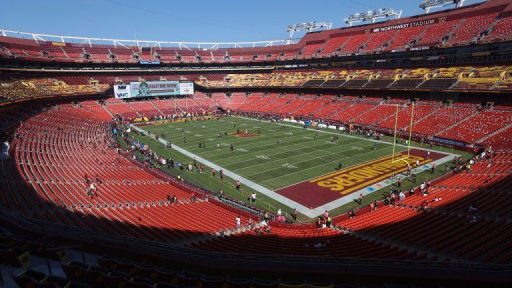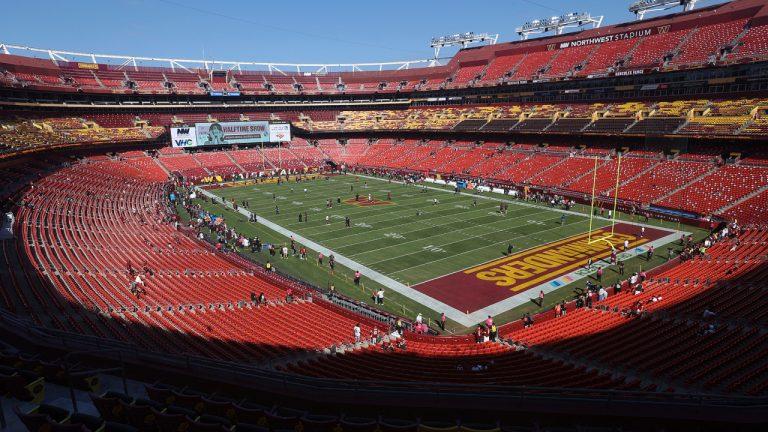Instant Access
No Waiting, Start Streaming Now
24/7 Support
Always Here to Help
Multi-Device
Watch on Any Screen
8K Quality
Crystal Clear Streaming


Instant Access
No Waiting, Start Streaming Now
24/7 Support
Always Here to Help
Multi-Device
Watch on Any Screen
8K Quality
Crystal Clear Streaming
In a meaningful step forward for both the Washington Commanders and the city of Washington, D.C., a new stadium deal at the historic RFK site has been reached, promising to reshape the landscape of local sports and entertainment. As the echoes of cheering fans and the nostalgia of football history converge, this agreement represents not just a practical solution for a team seeking a home, but also a potential revitalization of a cherished location that has long stood dormant. With plans now taking shape, we explore the implications of this deal—what it means for the Commanders, the fans, and the future of D.C. as a hub for major sporting events. In a city defined by its rich heritage and bold aspirations, the journey towards a new era of Commanders football at RFK is set to unfold.
In a landmark agreement, the Washington Commanders have secured a deal with the District of Columbia to construct a state-of-the-art stadium on the historic RFK site. The proposed development promises to revitalize the area with community-focused amenities and cutting-edge facilities for sports and entertainment. This project is expected to ignite strong economic growth in the surrounding neighborhoods, creating countless job opportunities. Beyond football, the vision includes recreational spaces and event venues, ensuring year-round use for visitors and residents alike.
| Feature | Details |
|---|---|
| Completion Date | 2028 |
| Estimated Budget | $2 billion |
| Transit Accessibility | Metro-adjacent with expanded bike lanes |
The project has been met with widespread support, marking a new chapter for both the commanders and the city. With ties to its storied past and an eye on the future, the RFK redevelopment symbolizes a bold step forward for D.C. sports culture. Fans eagerly await what promises to be a game-changing centerpiece for their beloved team.
The recent deal between the Washington Commanders and the District of Columbia for a new stadium at the historic RFK site is poised to deliver significant advantages for both sides. For the city,this agreement promises an economic boost,including job creation,increased tourism revenue,and significant infrastructure improvements. Residents can look forward to a revitalization of the surrounding area, with potential plans for park spaces, entertainment districts, and better transportation access. These enhancements not only elevate the neighborhood but also strengthen D.C.’s urban appeal overall.
The Washington Commanders, on the other hand, gain a state-of-the-art home field that will boost fan experiences and team operations. With the possibility for modern facilities and increased seating capacity, the franchise is well-positioned to attract larger audiences. Moreover, the potential for naming rights deals and sponsorship opportunities opens substantial revenue streams. This landmark partnership ensures not just a new sports venue but a hub of community and entertainment that fulfills mutual goals.
| benefits for D.C. | Benefits for commanders |
|---|---|
| Economic growth and job creation | Increased ticket sales and fan engagement |
| Upgraded local infrastructure | Enhanced sponsorship opportunities |
| Community revitalization | State-of-the-art training facilities |
The agreement to bring the Commanders back to RFK Stadium holds significant prospects and challenges for the local community. One notable impact will be on economic opportunities. The influx of jobs related to stadium construction, hospitality, and event management is expected to benefit local residents. Small businesses,such as restaurants,bars,and retail stores,could see increased foot traffic,particularly on game days and event weekends. However, concerns over the potential displacement of longtime residents and local shops due to gentrification are also looming. Discussions around community investment funds and local hiring practices will likely play a crucial role in determining whether the economic benefits are broadly shared. The project could also reshape the city’s financial priorities,with public funding plans becoming a key debate topic.
Beyond the economy, the deal is set to influence the social and cultural fabric of the neighborhood. Supporters argue the stadium will serve as a communal gathering space, fostering a renewed sense of identity and pride for the area. Additionally, there are plans to integrate public spaces, such as green areas or walking trails, into the redevelopment project, creating shared amenities for both residents and visitors. Tho, the anticipated rise in traffic and noise levels raises questions about the environmental and lifestyle toll on nearby communities. Mitigation efforts, like investment in public transit and noise-dampening technologies, will need to balance the excitement of the redevelopment with the preservation of neighborhood character.
| Impact Area | Positive Outcome | Potential Concern |
|---|---|---|
| Economy | Job opportunities | Gentrification |
| Community | Cultural pride | Traffic and noise |
| Habitat | Public green spaces | Pollution concerns |
To fully unlock the potential of the new stadium at RFK, strategic steps are essential to ensure all stakeholders—fans, local residents, businesses, and the team itself—reap its benefits. Community engagement should be a top priority, with dedicated programs to empower local neighborhoods. These could include offering workforce opportunities during construction and operation phases or collaborating with local vendors for food and merchandise. Additionally,year-round usage of the venue beyond football games—such as hosting concerts,festivals,and educational events—can make it a true community hub. A stakeholder advisory board involving fan groups, small businesses, and local leaders could provide ongoing input to refine plans and address concerns.
Equally critical is fostering local economic growth through strategic partnerships and thoughtful infrastructure. Dedicating parts of the stadium’s retail spaces to small, minority-owned businesses creates a platform for shared community prosperity. Moreover, a well-implemented revenue-sharing agreement between the city and the Commanders could help fund municipal projects like parks and public schools. Below is an example framework for transparent revenue distribution:
| Funding Area | Percentage Allocation |
|---|---|
| Local Infrastructure | 30% |
| Public Services (e.g., schools) | 25% |
| Community Programs | 20% |
| Team Operations | 15% |
| Miscellaneous (Emergency Funds) | 10% |
As the sun sets over the historic RFK site, a new chapter begins for the washington Commanders and their fans. The recent agreement for a stadium at this iconic location signifies more than just a venue; it represents a renewed commitment to the community and a bridge to the team’s vibrant past. While the road ahead may still hold challenges, the possibility of a modern home for the Commanders—a place where memories will be forged and legends remembered—sparks excitement among fans and stakeholders alike. as discussions progress and plans take shape, one thing is certain: this deal has the potential to reshape the future of sports in D.C., echoing through the city and beyond for generations to come. keep an eye on this story as it unfolds—after all, in the world of sports, every great journey begins with a single step.
34,353
Live TV Channels
162,404
Movies
27,802
Series
284,023
Total Subscriptions
139,854
Users Online
142,887
Total Resellers

